Get Help Now. Call 1-833-TLC-MAMA (1-833-852-6262) for 24/7 free confidential support for pregnant and new moms. If you are in mental health distress or have a suicidal crisis, call or text the Suicide and Crisis Lifeline at 988 for free and confidential support.
Trigger Warning: Mentions of mental health distress, self-harm, and suicide.
Start a healing journey
PPD is common and there is help if you are experiencing symptoms or supporting someone who is - explore resources here.
Read more stories of hope and healing:
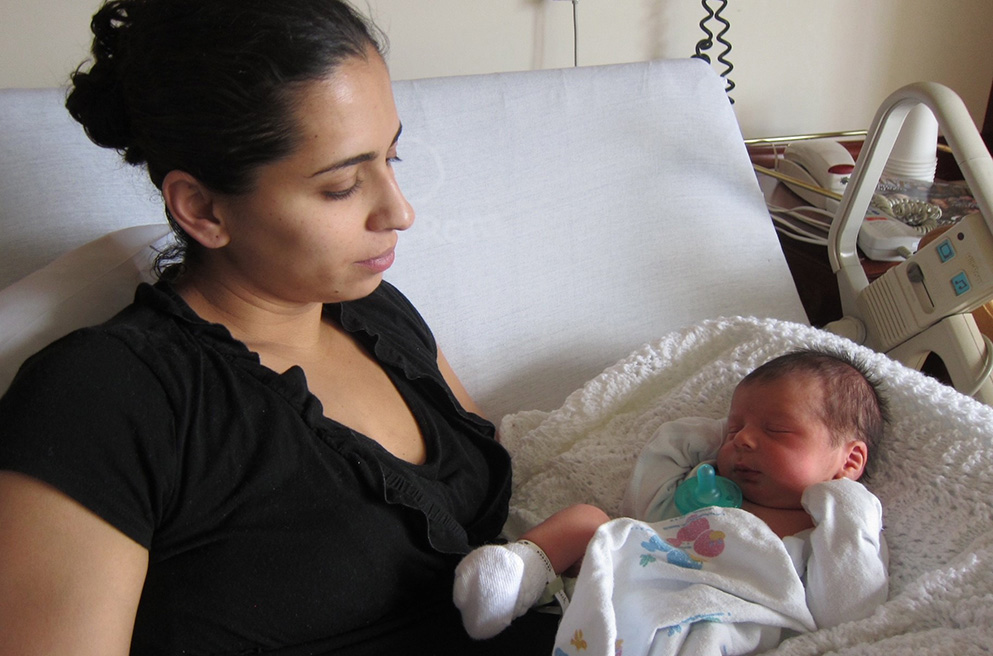
I first experienced PPD when I was weaning my daughter – it was shocking, unexpected. I didn’t know that PPD could happen so late. The simplest of things were hard – waking up, getting out of bed, dressing my daughter. I felt frozen and uncomfortable in my own skin. I didn’t know how to move forward.
When I got to the point that every day was harder and harder to get through, I knew I needed help. I found a therapist, but PPD didn’t come up. Then I found a peer support group for women with PPD, and it literally saved my life. Being part of a community of women who were experiencing the same challenges that I was, gave me hope and faith that I could get better.
My PPD healing journey has been long and beautiful. I just wanted to feel better – but it didn’t happen overnight. Once I found support, help and a community, I got stronger and a little better each day. It has not been a straight path, but when I struggle, I know where to go for love, support, and help.
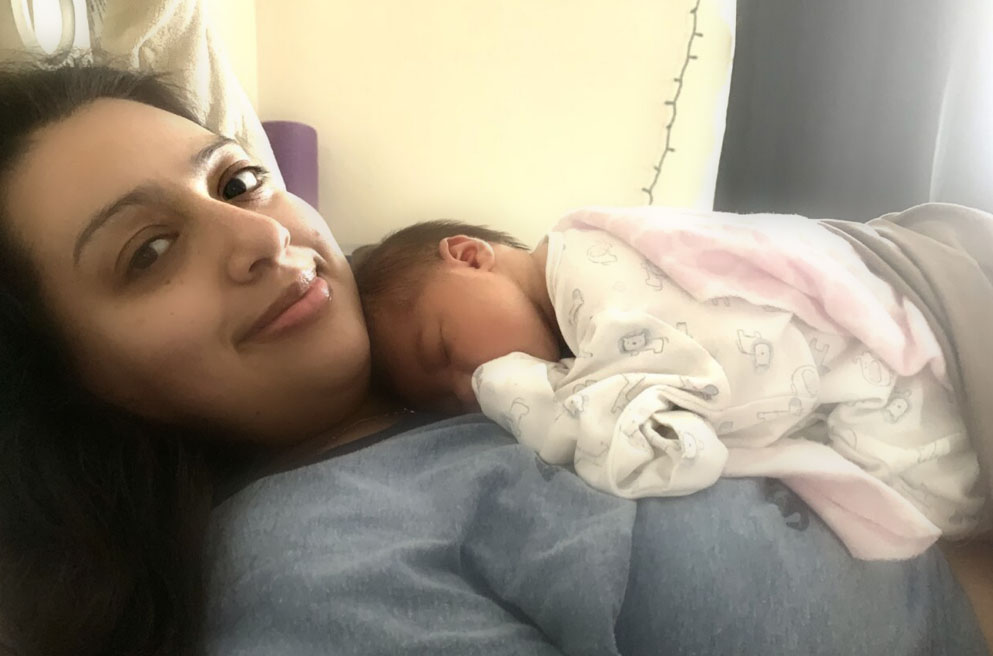
COVID was a backdrop for my pregnancy and postpartum experience. I had lots of scary thoughts during pregnancy and was constantly worrying. I became overwhelmed and would shut down or disconnect. After giving birth, I was depressed, found breastfeeding difficult and felt like a failure. My scary thoughts worsened and when I asked for help at 4 weeks postpartum, I was told that I had the Baby Blues and that it would get better. At 3 months I went back to work, was sleep deprived and the commute was hard – I was very angry and irritable and had suicidal thoughts. I was terrified that the anger and thoughts would lead to something worse. As a woman of color, I was worried that sharing my worst feelings and thoughts could mean having my child taken away.
Finally, I couldn’t ignore how much I was struggling. After 6 months I contacted my healthcare provider again who referred me for therapy, but the wait was too long, and the system had no code for PPD as a diagnosis. I felt so isolated. I searched social media and found Postpartum Support International (PSI), began attending support groups, and realized that I was no longer alone in my struggles. I found a therapist and between the therapy and support groups, things started to slowly get better, but I was still struggling. I had tried to avoid medication – partly because of my Latina culture and partly because I thought that I couldn’t be a ‘real mom’ on anti-depressants. When my suicidal thoughts got worse, I found the courage to ask my doctor for medication – the medication was essential and lifesaving for me.
Within 2 months on antidepressants, continuing support groups, and therapy, I felt like I had come out of the dark hole I had been living in and became the best version of myself ever! I worked hard in therapy to overcome the traumatic experiences of my childhood and my childbirth. I found joy in motherhood that I had not imagined. My experience with PPD, recovery, and now helping other women, have completely changed the trajectory of my life. I am passionate about peer support groups and helping parents not to suffer in silence like me.
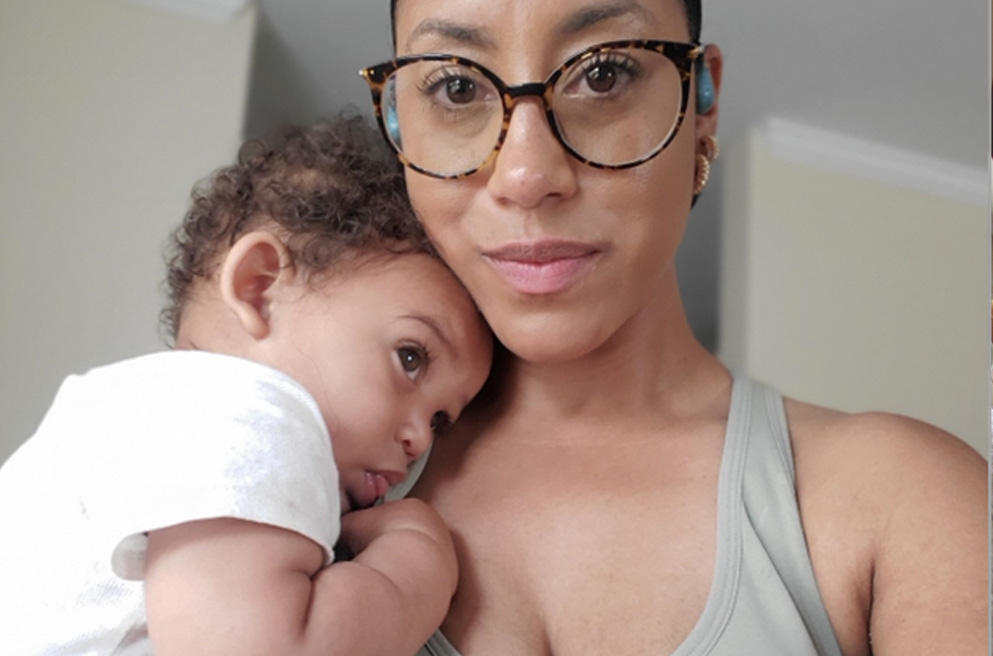
My PPD symptoms came on when my youngest was around 3 months old and my oldest was 2.5 - my husband who is in the military just deployed, and it was during COVID. I felt extremely alone and like I was suffocating - because I was physically isolated and alone. Every day, I woke up and said: "just try to keep yourself and the kids alive." I wasn't eating, was angry, and agitated. It went on for too long, and I realized that these were symptoms of PPD.
Months before my husband left, I tried to be proactive and contacted a therapist, but it didn't go well. Isolated and alone, I finally accepted my parents' offer to move in with them. We stayed with them, and they cared for me and the kids - that gave me the time, space, and support to get out of the dark space I was in. Throughout this time, I reached out to other women in my circle who struggled - that community support was important. It was invaluable.
At first, I felt some guilt because I'm a perinatal mental health therapist. I know the signs, I know the symptoms. But that doesn't make me exempt from experiencing symptoms of PPD. Now, when I look back, I feel like an overcomer, not just a survivor. I feel empowered to share my story with others. At the time I wanted help my way and on my terms. But that was unrealistic. It's okay to accept the "good enough" help even if it is not ideal - good is way better than no support. I'm proud to share and more importantly, celebrate what I overcame!
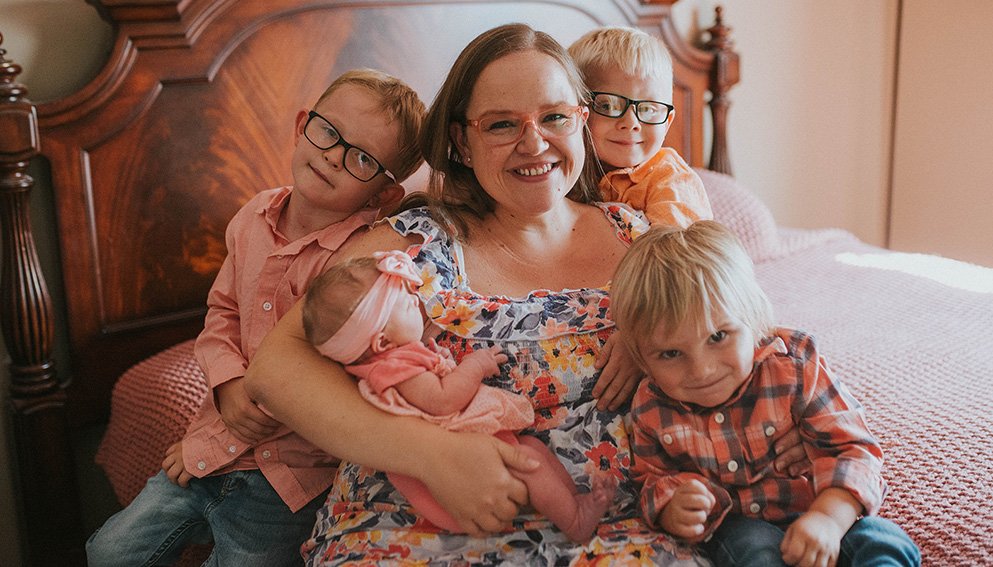
My PPD journey began June 20, 2015. I was miscarrying my first child and was completely shattered. Shortly after I was pregnant again and was anxious and fearful the entire pregnancy, waiting for a doctor to tell me there was no heartbeat. That never happened and on May 6, 2016, my first son was born. Everyday intrusive thoughts flooded my mind, I kept imagining the worst-case scenario, and was terrified to leave him for a second, while also wanting to just be alone and sleep the day away. My husband seemed so much more emotionally equipped at parenting and it seemed to come easy to him. Once my husband went back to work 2 weeks after our son was born, I struggled. I struggled with breastfeeding, I struggled with getting out of the house, I struggled with any type of self care. This went on for months, I wasn't myself, but I was trying my hardest to mask all of these emotions, because I was ashamed.
After months of struggling, crying by myself in the shower, and avoiding friends, I finally joined an online support group for newly post partum moms and moms who were grieving a loss. Sharing my feelings and journey with other women empowered me, showed me that I wasn't alone. Their support and encouragement convinced me to share how I was feeling with my husband, all of the shame started to vanish, and he immediately supported me through the struggles. He insisted on me getting out in the fresh air each day, showering each day, and we alternated nights so that we shared the around the clock baby duties. This helped immensely, and I really started to enjoy motherhood. Everyday isn't perfect or easy, but now I don't feel alone, I don't feel ashamed, I can speak up and advocate for myself.
My healing journey has had its ups and downs, my husband and I lost two more babies to miscarriage and birthed three other healthy full-term babies over the last 6 years. These losses have caused me fear and uncertainty during my pregnancies, but now I don't suffer in silence. Both my care team and my husband have done a wonderful job at recognizing when I'm anxious or fearful and they've been a constant support over the last 7 years.
Motherhood and postpartum is not linear, I think all mothers struggle sometimes, but having support, sharing my feelings and taking care of myself, has made an incredible difference in my life and allowed me to enjoy this incredible role of mother. Seeing my children smile, grow and look up to me makes me so proud and they encourage me each day.
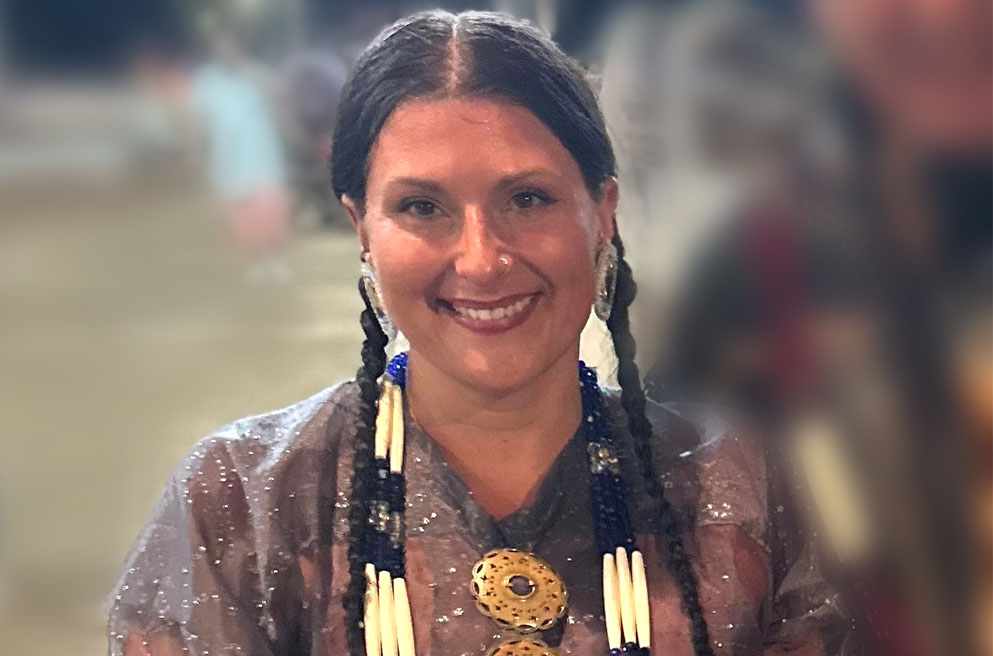
I was 31 when my first child was born. As a licensed mental health counselor and an older mom, I felt well-equipped for motherhood's emotional rollercoaster. I first noticed things were off about 2-3 weeks after my daughter was born. I started to have scary, intrusive thoughts and severe anxiety. The “What if “ fears reduced my already limited sleep, and the anxiety would make it hard to breathe. People told me this should be the happiest time of my life, and I was miserable. My husband noticed things weren't right and urged me to get help.
I was afraid to tell anyone what was going on, so I started researching what was happening to me. The more I researched, the more I recognized the symptoms were PPA/OCD. My OB offered me medication, but I wasn't comfortable taking it. On our Reservation, there were limited resources or accessible information for Native American women like me. I was afraid to let anyone know what was happening. I didn't want to look like a “bad mom.” I ended up not seeking help. I became pregnant again, and it started all over again once my second child was born. Instead of suffering in isolation, I leaned into my support system and advocated for myself by telling them what I needed. My circle of support included my husband, my sister, and my parents, plus I had my mental health colleagues. I gave myself permission to ask for help.
I wanted my kids to have a whole mom and have good memories of me being fully present. My journey has been complicated, but I turned my misery into my mission - learning, getting training, becoming a PMH-C therapist, advocating, and networking with other moms - that nurtures me to spread awareness and has been a huge part of my healing journey. I want to shed light on postpartum mood disorders, especially within minority groups, and advocate for more culturally sensitive information and treatment options.
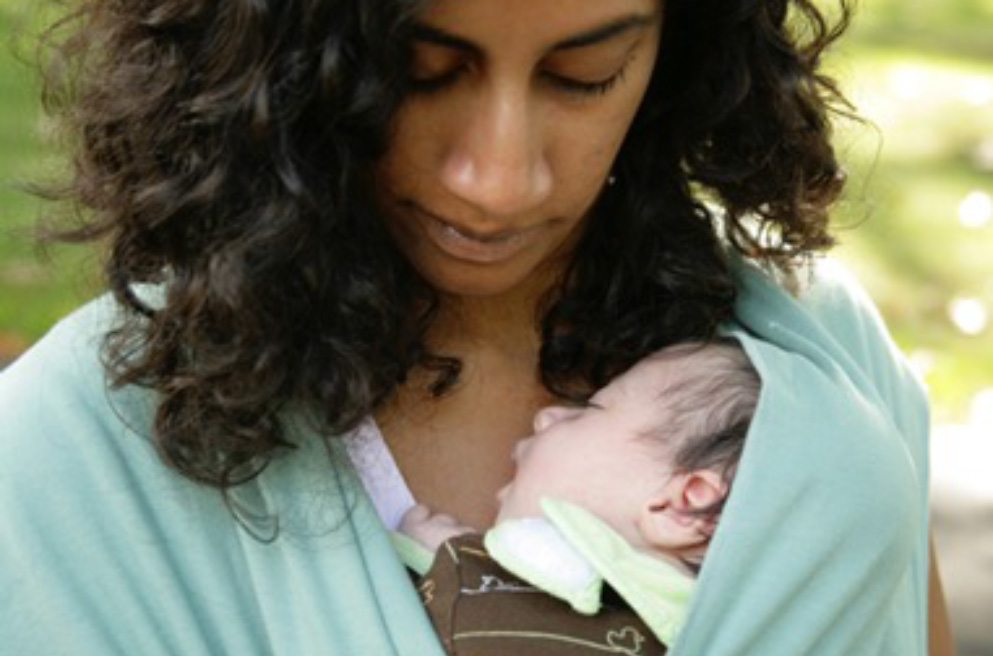
A few weeks after my daughter’s birth, I found myself very on edge. My mind was racing, and I couldn’t stop thinking about every bad thing that could happen. I worried about whether she was breathing. Then I would check—and check again. I kept telling myself it would get better as she got a little older, but my anxiety just got more out of control. My husband noticed it getting in the way of my ability to sleep. It was also interfering with my ability to enjoy my baby. I tried to convince myself—and my husband—it was all okay; that I could handle it by myself. But another complicating factor was my own guilt.
I’m a child of immigrants. I was raised to believe when things are hard, I just need to try harder, I was taught to be grateful for what I have. My parents struggled, suffered, and sacrificed for me—so I felt guilty for being anxious instead of just being thankful for having a healthy baby. The guilt made my anxiety even worse. I was finally able to talk to a therapist and get a handle on my feelings. She was wonderfully supportive and a survivor of perinatal mood and anxiety disorders herself. It was incredibly helpful to have my experience validated and see that you can come out on the other side.
I’ve worked hard to understand and un-learn old patterns of guilt and self-blame. I’m now a perinatal psychotherapist working with adult children of immigrants, examining how narratives of struggle and sacrifice interfere with our ability to give ourselves compassion and grace during the postpartum period. I’m grateful for the opportunity to share my story so children of immigrants—and all new parents—can understand they’re not alone, and that help is available.
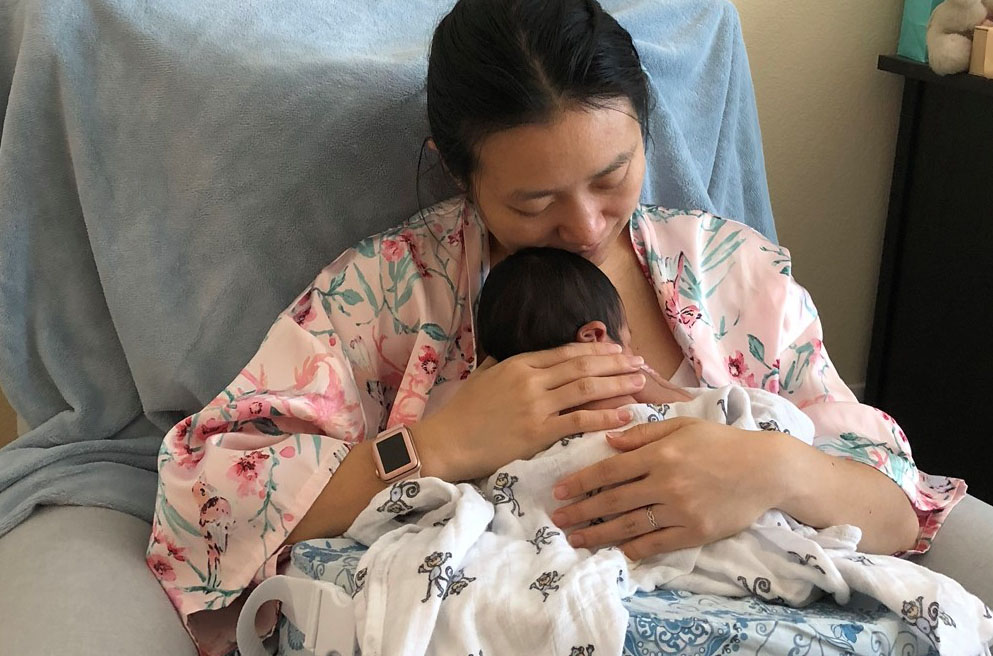
I had a hard time getting pregnant, so I made it a priority to take care of my health and to be prepared. Being a healthcare provider, I thought that I had all the resources and support I needed, but so many things were surprisingly hard. Breastfeeding was unexpectedly hard, and I felt pressure to do everything well, even while not sleeping and becoming increasingly anxious and developing insomnia. Finally, it became hard to even move from the bed to the couch; days blurred, and I felt hopeless and asked myself "Why did I want this?" It felt like I was failing… At six weeks postpartum, I saw my OB who prescribed antidepressants, but I didn’t want to take them. Finally, my husband begged me to take the medicine and see someone – that was the real beginning of addressing my PPD. He accompanied me to see a psychiatrist, and I finally felt seen. She developed a medication plan with me for sleep and depression, and I started to take them. I continued with the psychiatrist and began to feel better after starting therapy too. I went through a few therapists but finally felt like I connected most with an Asian American therapist. Eventually I tapered off all of my medications, but when we started to think about if I even wanted another child, I found a therapist with perinatal specialty (PMH-C) and have continued with her ever since.
The PPD experience has changed my life – I value my mental health so much more and I try to pay it forward now by helping other moms not suffer as hard as I did. Volunteering for Postpartum Support International was healing in a way; writing and sharing about my experiences has also been therapeutic. The whole journey has also helped me to realize how I want to parent and how important it is to take care of a mother's mental health. I believe that we must address the guilt about taking care of ourselves. Depression lies to you about your worth – you lose your sense of self-worth. You have to believe that you are the best thing for your baby - under all of the rest, that is the truth. The best gift you can give your child is a mother who is well--mentally and physically.
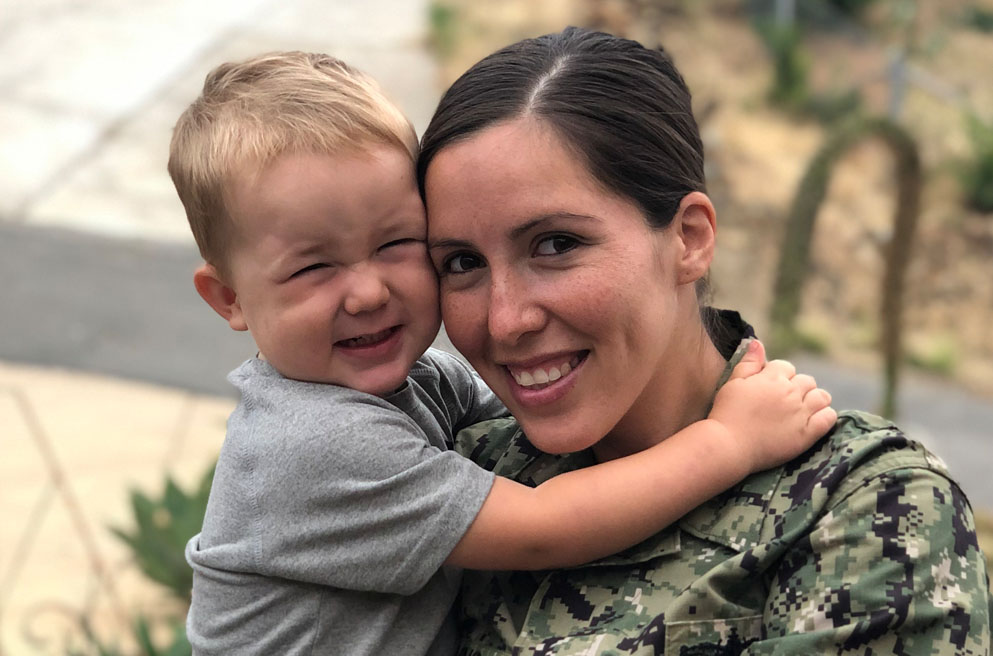
I was active-duty military when I experienced the traumatic birth of my first son. I left the hospital without receiving lactation support. At home, I couldn’t breastfeed him and he just cried and cried, and I couldn’t connect with him. My husband bonded with the baby, but I couldn’t, and I wondered what was wrong with me. I was frustrated and crying randomly, spiraling, and feeling broken.
My husband found information on lactation support that the hospital had provided and left a page open for me to find. My body needed to be taught – I got support, was able to breastfeed him and felt that I could do something right and be in control – I bonded with the baby and we both stopped crying - I began feeling better.
When it was time to go back to work, I felt immense dread about being away from the baby and imagined him being harmed. People told me it was normal, so I pushed it down and went back to work. The feelings continued and a year later when it was almost time to be deployed, I knew I needed help and saw a doctor who did a lot of physical testing, but nobody wanted to talk about PPD and anxiety. Others tried to help but the drive to move forward was strong, even as I was hurting.
It took two years to feel right, during which I had gotten information, learned new coping skills and had support from Postpartum Support International. I wanted to have my concerns acknowledged, be supported by the military, and to get counseling. I finally got a referral for counseling and learned new ways to cope which allowed me to continue to heal before the joyful birth of my second child.
Why will we deal with physical health issues, but not mental health? We need to take care of ourselves and each other.
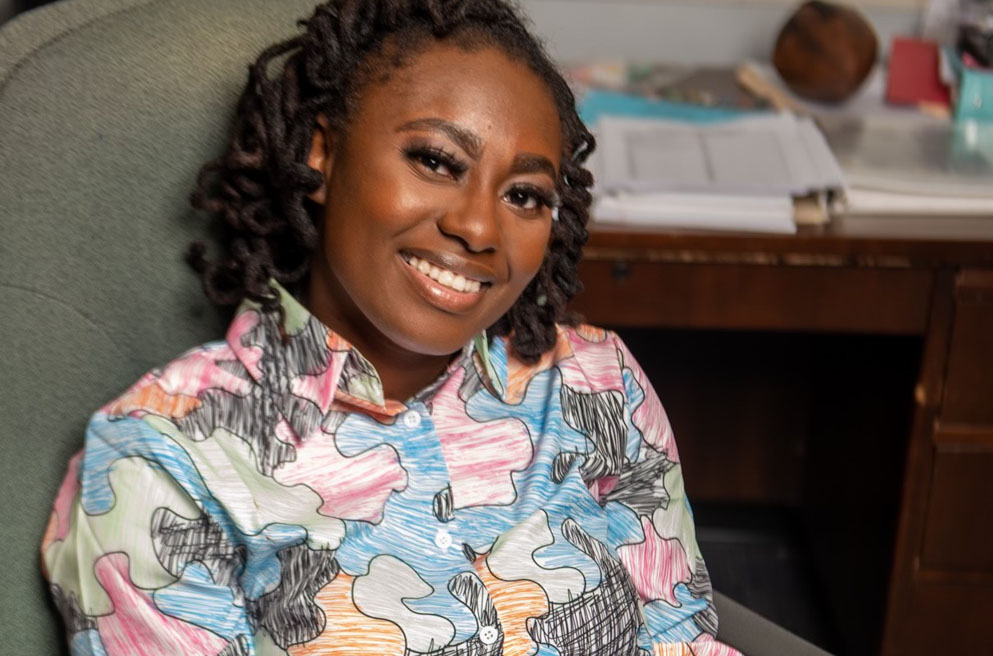
My PPD experience was extremely lonely, taboo, and it felt unbecoming as a member of the world’s greatest fighting force. My feeling - I’m flawed and imperfect. And honestly? I was unprepared for the feelings that accompanied that hard truth.
As a woman who struggled to get pregnant, endured IVF…and then lost my child, I felt defeated. So, I didn’t notice that something was wrong. No one viewed me as a mother. So, no one expected the non-mother to experience PPD. But I did, and it was rough because I couldn’t meet the standard. PPD served as a constant reminder that I failed at becoming a mother.
I tried to intellectualize the experience, but it wouldn’t go away. Battling PPD without the proper tools and support felt like pushing a boulder that just wouldn’t move. When I realized my struggle to function was more than “just a little sadness and nerves”, I knew it was time to reach out for help. Going to work and seeing pregnant veterans in active mental health crisis was very triggering. It was an exhausting effort to press forward battling some invisible force attempting to keep me from moving. My ability to take time away was limited, so I embraced the most rebellious act of self-love imaginable - by taking a knee. I stepped away from both clinical practice and military service to start healing.
I found a great therapist who supported me in addressing my PPD, grief, and infertility. Healing was both from the experience and from the pressure I put on myself. Therapy gave me permission to redefine strength, motherhood, and resilience. This gifted me a new life and perspective! Specializing in reproductive mental health and education, I began sharing my journey and inspiring others, eventually re-entering practice more motivated than before! I chose to heal in public to encourage those forced to do it in private. Our journeys depict true resilience. We are warriors of change.
“There is pain in your purpose, but your purpose is not pain in itself.”
Start a healing journey
PPD is common, but there's help available for you if you are experiencing PPD and for those who support women with PPD.
- Click here to view our Finding Support for Postpartum Depression webpage, it’s filled with tips and resources for navigating and healing from PPD.
- Click here to download Supporting Someone with Postpartum Depression for more tips on how you can support someone experiencing PPD.
- Click here to view our webpage of shareable PPD media assets and educational materials.

